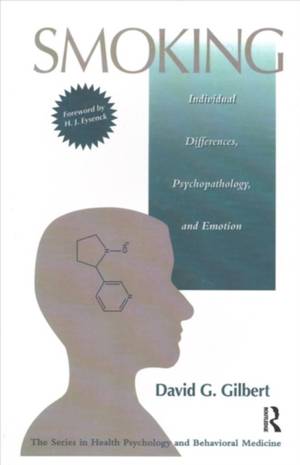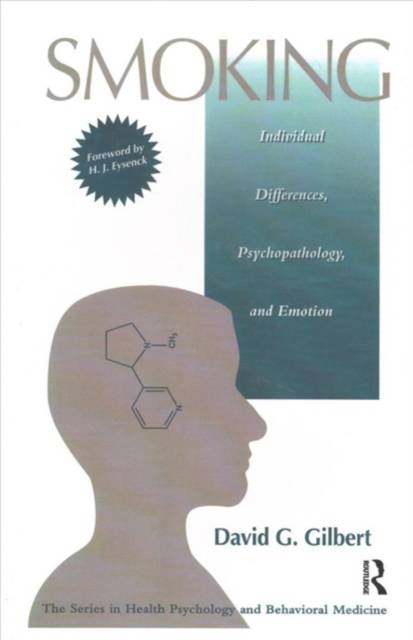
Door een staking bij bpost kan je online bestelling op dit moment iets langer onderweg zijn dan voorzien. Dringend iets nodig? Onze winkels ontvangen jou met open armen!
- Afhalen na 1 uur in een winkel met voorraad
- Gratis thuislevering in België vanaf € 30
- Ruim aanbod met 7 miljoen producten
Door een staking bij bpost kan je online bestelling op dit moment iets langer onderweg zijn dan voorzien. Dringend iets nodig? Onze winkels ontvangen jou met open armen!
- Afhalen na 1 uur in een winkel met voorraad
- Gratis thuislevering in België vanaf € 30
- Ruim aanbod met 7 miljoen producten
Zoeken
€ 65,95
+ 131 punten
Uitvoering
Omschrijving
Personality, psychopathology and emotional factors are intimately related to smoking, yet there are few efforts to integrate relevant findings in these areas. Taking a comprehensive, current and detailed view, this text develops an empirically-based model that reflects the multi-dimensional, individual-difference-related causal paths associated with smoking and its reinforcing and affect-modulating effects.; Starting with a review of models of smoking motivation, this volume then goes on to discuss effect and emotion, and the nature, biological bias and relationships among personality, temperament and psychopathology. Other chapters focus attention on questions of when, in whom and what mechanisms promote and reinforce smoking and tobacco use such as gender differences. Utilising the findings of these chapters, the integrative biopsychosocial STAR Model Of Smoking Effects And Motivation Is Presented And Its Implications are examined.; As the percentage of smokers in the general population decreases, a growing number of those continuing to smoke will be even more difficult to reach. Such individuals will benefit from the individualised and intensive interventions suggested here. This text is intended to be of use to psychologists, psychiatrists, physicians, epidemiologists, sociologists and other health professionals.
Specificaties
Betrokkenen
- Auteur(s):
- Uitgeverij:
Inhoud
- Aantal bladzijden:
- 326
- Taal:
- Engels
- Reeks:
Eigenschappen
- Productcode (EAN):
- 9781138996175
- Verschijningsdatum:
- 15/07/2016
- Uitvoering:
- Paperback
- Formaat:
- Trade paperback (VS)
- Afmetingen:
- 152 mm x 229 mm
- Gewicht:
- 439 g

Alleen bij Standaard Boekhandel
+ 131 punten op je klantenkaart van Standaard Boekhandel
Beoordelingen
We publiceren alleen reviews die voldoen aan de voorwaarden voor reviews. Bekijk onze voorwaarden voor reviews.











